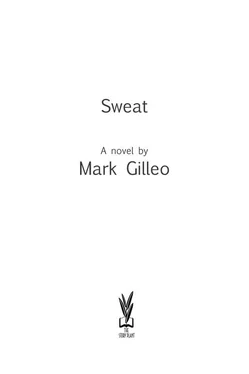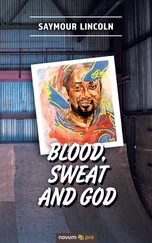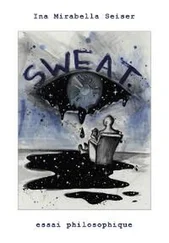He had developed numerous voting systems, all equally lacking in political acumen. Who cared how he voted? How many constituents actually follow the votes of their senators and congressman on a daily basis?
Exactly.
Senator Wooten’s favorite vote-deciding factor was the number of guests in the far section of the visitor’s balcony. An even number of visitors earned a “no” vote. An odd number ensured a “yes.” The Anti-Deforestation Bill, and millions of century-old hardwoods, had passed by a single vote, thanks to the elderly gentleman with the cane who returned from the bathroom just as the senator was ready to lower his thumb.
The fact that Senator Wooten didn’t care how he voted didn’t mean he underestimated the value of a vote. Senator Day came to find out how much it would cost for the senator to put down the flip of the coin for the Special Committee on Overseas Labor.
Senator Day walked into Senator Wooten’s office and announced himself. “He is waiting for you,” Senator Wooten’s middle-aged secretary answered, her wire-frame glasses hanging around her neck by a silver chain.
The opening conversation was a rerun of the one he had just had with Senator Grumman. Senator Day forced his way through the niceties with a smile, as if it had been years since anyone had asked him about his life, his wife, or his upcoming child. He explained the vote at the upcoming Senate committee, and Senator Wooten understood.
“So you want me to change my opinion and vote against an international minimum wage,” Senator Wooten asked, cutting to the chase after five minutes of heavy hints and innuendo.
“Well Senator, I’m never sure what anyone’s opinion really is until I see how they vote, so I can’t say whether I’m trying to change yours.”
“Senator Day, it wouldn’t get me very far if I told you I was ready to go along with a vote in favor of a bill that would lead to more overseas job flight. You’re here for a reason. If I tell you I was ready to vote in favor of overseas labor, what would that get me? Votes aren’t free, Senator. So for the sake of progressing this conversation to a mutually beneficial conclusion, let’s assume I am voting against overseas labor. Let’s assume I am in favor of an international minimum wage for U.S. firms doing business overseas. Let’s assume I believe legislation is the only thing that will drive jobs back to the U.S.”
“Overseas labor is not a popular topic these days. Your assumptions merely confirmed my suspicion on your position.”
“No, overseas labor is not a popular drum to beat in the current political environment. But I don’t let public opinion interfere with business either. Constituents just aren’t privy to all the information that we as senators have at our disposal. I believe I was elected to make educated decisions for my constituents. Whether they realize it or not.”
“Thank you for your honesty, Senator.”
“You invest in real estate?”
“Dabble a bit.”
“You ever heard of Wellfleet Bay?”
Senator Day perked up. “Of course. It’s a wildlife sanctuary on Cape Cod. Some of the most pristine land in my home state. A thousand acres of marsh and woodland, surrounded by spotless beaches. When I was a child, my grandfather took me clamming and fishing off the banks of Wellfleet Bay. Who knows, if God blesses me with a healthy son, maybe I can take him there someday.”
“Yes, Senator Day. It is beautiful land. Pristine, as you say.”
“Do you fish, Senator Wooten?”
“No, I don’t even like the taste. But I do like real estate, Senator Day. I do like real estate. They just aren’t making any more earth, and the law of supply and demand is being driven by an ever-increasing population and a finite supply of land.”
“Never have truer words been spoken.”
“Just north of Eastman on the Cape’s west coast is a ten acre plot of land I have interest in. Only problem is that the land lies adjacent to a remote corner of the Wellfleet Bay sanctuary. No sense in buying the land if I can’t develop it…”
Senator Day cringed as Senator Wooten described the plot of land with surveyor-like detail—information gleaned from online photos. Senator Wooten did love real estate. And he had spent the previous afternoon searching Massachusetts for a prime investment opportunity stalled by politics.
The two politicians drank coffee as Senator Wooten showed that he did indeed know the value of a vote. And if Senator Day could clear an inside tract to ten acres of idyllic real estate, he figured he could make a few million just divvying up the land and re-selling it.
“I’ll be watching how you vote,” Senator Day said, leaving the office.
“And I will be checking your progress on my land,” Senator Wooten responded.
As Senator Day stepped into the afternoon air, the ulcer in his stomach bubbled. The combination of coffee on an empty stomach, and days of heavy liquor on a belly of coffee, burned a hole through the senator’s stomach lining like hot grease poured into a plastic cup. He doubled over, eyes watering, and dug in his pocket for some ibuprofen, the finishing touch on the toxic waste in his gut.
One more vote and he could go home and say hi to his wife. Dana had the evening off, and his wife would be asleep by nine. He could drink himself silly in the privacy of his own home.
The last vote came at the hands of Andrew Thomas, senator from Montana, and virtual no name on The Hill. Senator Thomas was the youngest senator by three years, and Senator Day thought he still had enough seniority and slick-Willie, over-the-top charm to impress the new kid on the block. Especially a kid from Montana, home to a population of ten people per square mile.
Senator Day danced and kicked, sang and spun. For thirty minutes he felt up the young senator, fondled his beliefs, trying to manipulate the boy from Montana without giving any ground himself. He had done enough damage for one day. He had already written a check for a vote, an impeachable offense, and agreed to soil his childhood fishing ground with construction run-off and human waste. His charity was running thin.
Senator Thomas put on his innocent face, cherub cheeks fleshy under a mop of brown hair. He smiled the same smile that had won him the election and waited for Senator Day to run out of hot air.
“I’ll give you the vote,” Senator Thomas said flatly.
“That is a good decision, son,” Senator Day responded with visible relief. The senior senator stood and stuck out his hand for a deal-sealing shake.
As Andrew Thomas rose from his seat to stick out his hand, he stopped. “And in return I’m just going to slip you right into my pocket. I’m going to save you for a rainy day, Senator Day. And when the day comes and I say ‘jump,’ I fully expect your answer to be ‘how high?’”
Senator Day flinched and then nodded silently as Senator Thomas withdrew his hand without a shake. The boy knew his way around the political minefield. Senator Day took note to keep an eye on this kid. Someday, he might need a young man with his politically savvy, self-promotion, and survival techniques.
Senator Day left the office, promising to make good on his promise, and thinking about DiMarco. He was waiting for the word that the job had been done. Then life would be back to normal. Back to his wife, his new child, his undeniable political right to act like a senator without any distraction or repercussions.
Chapter 24
The line to the entrance of the Spy Museum snaked down Eighth Street toward Chinatown and the Verizon Center. Chow Ying stood near the front of the triple-wide crowd sucking the sweet coating off the Advil pills in his mouth before swallowing the remains. The Mountain of Shanghai, his foot bandaged and throbbing, mixed with the tourists, rubbing shoulders with a smattering of intelligence buffs and ex-spook types waiting for a chance to admire the best display human ingenuity had to offer.
Читать дальше












